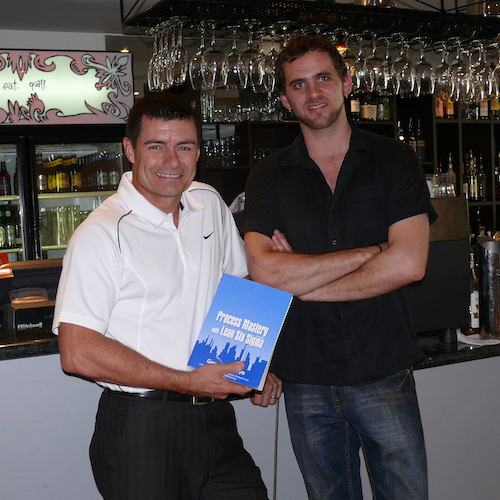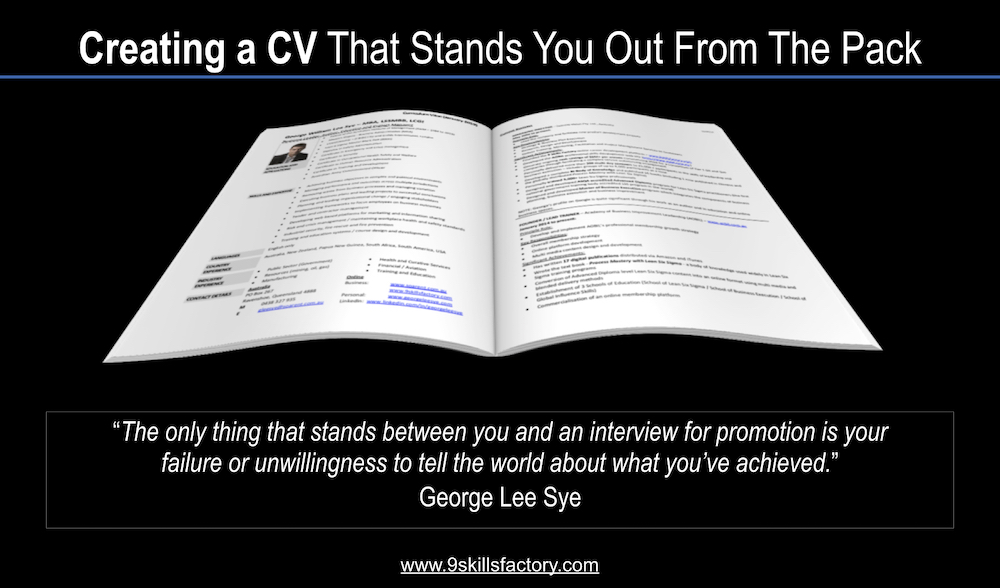Costs associated with people usually make up the single biggest element of expenses in a company. Yet amazingly, most people know less about the human factor of their business than they do about the technical aspects. Even though it takes the largest chunk of costs and is the biggest variable they have, they spend way too little time on the human factor.
HOW MUCH DO YOU REALLY KNOW?
Costs associated with people usually make up the single biggest element of expenses in a company. For our business it's greater than 70 percent of our operating costs. In BHP, for example, when I last looked it was more than 10 percent of some 2.8 billion dollars in operating costs.
Yet most people know less about the human factor of their business than they do about the technical aspects.
Even though it takes the largest chunk of costs and is the biggest variable they have, their development on the human factor was the minor part of their education.
This is one of the reasons why we give a lot of attention to human performance and influence on our 9 Skills Factory platform now.
It's also the area where you have the opportunity to really stand out from the crowd.
Why do we know so little about the human element?
Here's three reasons why there is generally little knowledge in this area.
REASON #1 - IT'S GREY, MURKY AND FULL OF VARIATION
There is a clear tendency for us (I'm generalising here) to ignore or at least avoid much of the human or emotional side of the business because it's such a grey area.
We're so comfortable with and conditioned to work with black and white [as opposed to grey] that the variables associated with human behaviour are very challenging. It's a cloudy and murky area that can often cause us confusion and frustration.
A Melbourne hotel owner once said to me that he would love the job he had if he didn't have to work with people and customers.
Truth is we tend to focus on and give attention to the things we're most comfortable with, usually the technical aspects of work.
When things are cloudy and murky, we move away from that and give attention to the things we understand most; the black and white, right and wrong, pass or fail aspects of the world.
Our education system created that.
REASON #2 - I KNOW BOATS
The second reason is we have an 'I-know-boats' attitude.
A guy buys a new television. He takes the box home, rips the tape off, opens the box up and then removes this beautiful piece of technology. He mounts it on its stand, plugs it into the power socket, puts a battery in the remote control.
He then spends the next two hours trying to make it work. As a last resort, a very final resort... he goes and gets the instruction book.
Why does he do that?
He does that because he knows TVs, he knows technology, he's used it before so he doesn't need to go to the instruction booklet.
This is true is it not?
Anybody involved in the development of applications or software knows they have to produce something that is intuitive to use, nobody will look at an instructional manual today.
That same mentality shapes our behaviours when it comes to dealing with people.
We are ourselves people, so it stands to reason that we think we know how people operate. We work with people, we've seen people working with people, we don't need to go to the instruction booklet (even if there was one).
And yet the reality is that we are most challenged in our work when it comes to the area of human behaviour.
Unfortunately we might not really know boats when it comes to the crunch.
REASON #3 - OUR EDUCATION IS A TECHNICAL ONE
Our education system inadvertently conditions us to focus on the technical aspects of work.
Technical training forms the major part of our development, irrespective of whether we're training to be an engineer, an accountant, a commerce expert, or even for a generic leadership role.
To complete my MBA I remember studying 22 course textbooks. There were literally thousands of pages with information about leadership, human traits, profiles and organisational behaviour, all laid out with beautiful diagrams and models.
Now in hindsight I realise that it was mostly written in a technical format.
The course presented the 6 traits of great leaders to replicate; the 4 styles of leadership to adopt for specific circumstances; leadership and business models presented in some visual structure like a quadrant or matrix or 8 point wheel.
It became clear to me very early on that only an extremely small part of the content had any real substance when it came to human behaviour psychology.
I was somewhat disappointed that the program never effectively addressed topics like how to recognise and deal with thinking patterns, how to address human emotions in creating or driving organisational change, how to cause people to change their behaviour permanently and how to build rapport and establish relationships for business purposes.
But then again I have to be realistic and recognise what the course was – a business administration qualification, not a 'change leadership' program.
PERFORMANCE MANAGEMENT GONE WRONG
Even employee performance issues get pushed into a technical framework.
Take our performance management systems for example. If an employee is not performing to the expected level, what do we do?
Well we might put in place new performance measures, we'll probably increase the number of performance reviews we do or frequency of those reviews, we usually apply stringent rules and give the employee very strict guidelines about what they can and can't do.
Does this address the real cause behind the under-performance? In most cases probably not.
MANAGEMENT OF UNDER PERFORMING COMPANIES GONE WRONG
If a company is not performing from an economical sense, what do business leaders do?
Often a company's executives will demand an increase in the frequency of management reports. I remember the case of Olympic Dam when it was under the ownership of Western Mining Corporation.
It was struggling to generate a return on capital that was appropriate for the billions invested in the venture. So corporate executives implemented greater levels of control and increased reporting frequency from monthly to weekly.
When I sat and spoke to the leaders of that business asset, I saw bloodshot eyes and some very tired people in front of me. There was a lot of obvious unhappiness throughout the workforce.
In an effort to solve the problem, they had effectively done more of what was not working in the first place.
Most of these approaches for solving such issues do not deal with what causes the under performance, nor does it address the psychology behind human achievement.
More bureaucracy in a company seems to be the fall back in companies where the thinking and behaviour, thus culture, of the organisation is not right. Something worth remembering.
FINAL THOUGHTS
The key thing to take away is that we do need to understand more about an organisation's largest single cost: human beings. And until we do, we are at risk of trying to technically solve problems that require solutions to address the psychological and emotional aspects of under performance or resistance to change.
SOURCE
The content here is drawn from George Lee Sye's 2011 publication - 'People Leadership Growth' - available as an eBook for both Kindle and iPad.
Kindle Version - click here
IBooks Version - click here
To discuss how you can utilise the 9 Skills Factory platform as part of a successful leadership skills development strategy, or how we can personally support you, call us on +61 (0)438 128 338 (Australia) or email us at [email protected]


